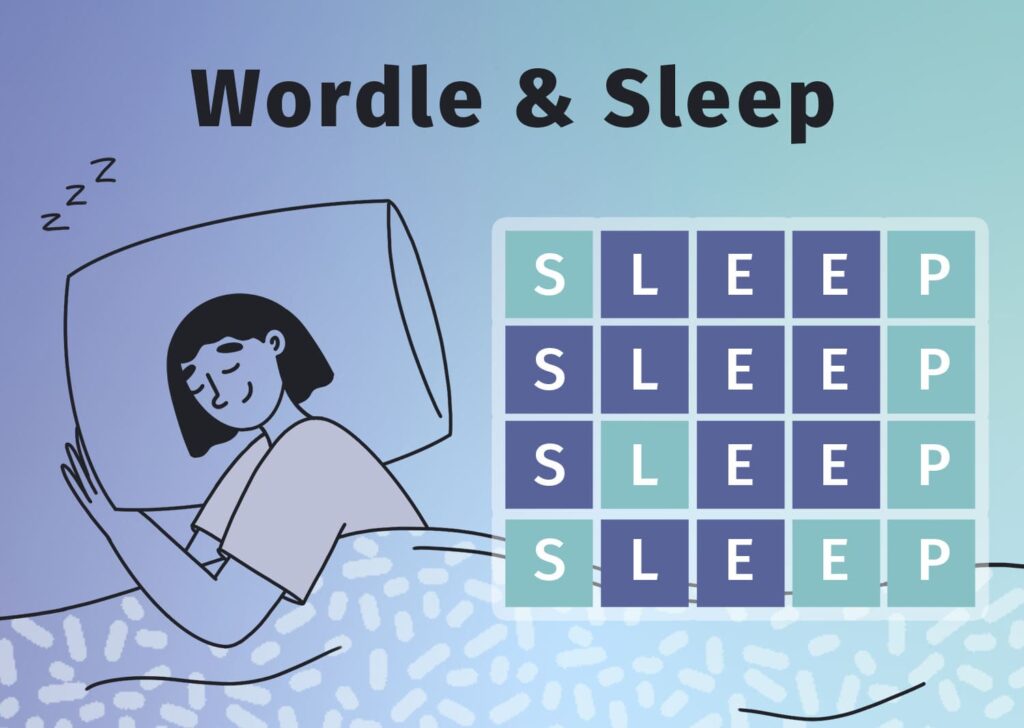If you’re an avid social media user, you’ve likely heard of Wordle — the new game taking the internet by storm. It’s — you guessed it — a word game. It’s gained popularity for its ease of use and quick resolution; games typically don’t take more than about five minutes. The game also gives users stats on how many guesses it takes them to complete the game, making it easy to share with friends and track scores.
Wordle is a puzzle, and did you know that puzzles have sleep-inducing benefits? Take a look at how Wordle works and how it could help get you a better night’s rest.

How Wordle Works
Wordle consists of a grid in which users guess the letters that make up a five letter word. The five letter word is the same for all users, every day. Each time a user guesses a word, a letter will either turn green (correct letter, correct spot), yellow (correct letter, incorrect spot), or gray (incorrect letter for the word). Users get six tries to guess the word of the day.
The game was created by software engineer Josh Wardle, and exploded from just 90 daily users in early November to about two million in mid-January. Most users are between 18 and 44, and it’s climbing the ranks to rival game giants Candy Crush and Words with Friends.
Wordle and Sleep
Playing puzzles or word games can have benefits for helping you get better rest. That’s because puzzles are good for reducing stress — the main cause of restlessness and insomnia. They put users into a meditative state, where they are only focusing on a single goal, and anxieties take a back seat.
Meditation has myriad benefits for the mind, including clearing it of intrusive thoughts. Psychologist and researcher Rachel Kowert told Inverse that she believes Worlde provides this type of respite: “We need a little escape to rejuvenate and relax our mind. Then we can function at our highest capability.”
Leslie Kung, an Asian American writer, told VeryWellMind why Wordle appeals to her: “Wordle is a word puzzle that doesn’t demand more. Unlike most app games today, Wordle is a website with only one word puzzle per day.” The simplicity of the game allows users to have a fixed start and end point, and that end point is easily reached.
Wordle also fosters a sense of community, which can also help reduce stress levels and promote wellbeing, ultimately leading to better sleep. Kowert tells Inverse that it benefits “our mental health to be socially connected to others,” and games like Wordle help forge those connections.
Tips for Using Wordle to Help You Sleep
Though Wordle can help you get better sleep, it’s important to keep in mind how and when you should play the game. Take a look at some of these tips:
- Don’t play Wordle right before you go to bed. The blue light emitted by your phone can actually impede sleep. Make sure to play the game at least an hour before you’re trying to get some shut-eye.
- Don’t let yourself get too wrapped up in the competitive social media aspect of Wordle, as this can end up leading to more stress. Play the game at your own pace, and if being competitive is a fun and stress-free activity for you, go for it.
- Try playing Wordle when you’re feeling stressed about something else, it might be just the break you need to get back on track.